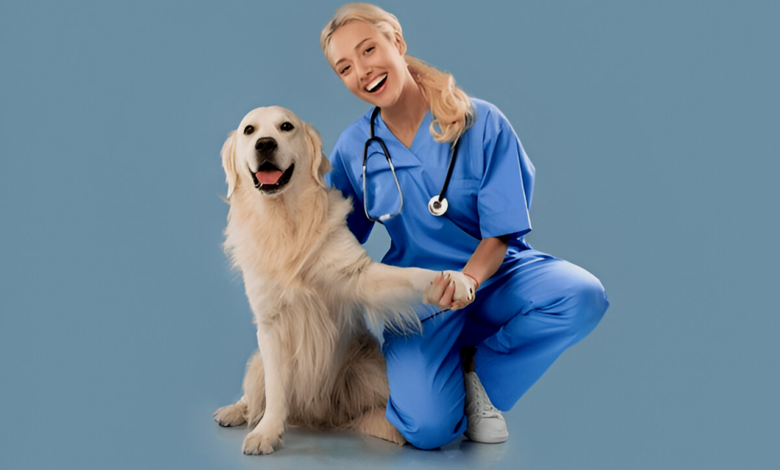
Annual Vet Checkups: Why They’re Essential for Your Pet’s Health
Annual vet checkups are essential for your pet’s health, ensuring early disease detection, preventive care, and a longer, happier life.
Annual vet checkups are a cornerstone of responsible pet ownership and play a vital role in ensuring your pet’s long-term health and well-being. Just like humans, pets require regular medical attention to prevent illnesses, detect potential health issues early, and maintain their overall quality of life. These routine visits to the veterinarian are not just about vaccinations or treating visible problems; they are comprehensive health assessments that can uncover hidden conditions, provide preventive care, and offer tailored advice for your pet’s unique needs. By prioritizing annual vet checkups, you are investing in your pet’s health, happiness, and longevity.
In this article, we will explore the importance of annual vet checkups in detail, covering everything from the benefits of early disease detection to the role of preventive care in extending your pet’s life. We’ll also discuss what happens during a typical checkup, why regular visits are crucial for pets of all ages, and how these appointments can strengthen the bond between you and your furry companion. Whether you’re a new pet owner or a seasoned caregiver, understanding the value of annual vet checkups will empower you to make informed decisions about your pet’s health.
The Importance of Annual Vet Checkups
Annual vet checkups are more than just a routine obligation; they are a proactive approach to safeguarding your pet’s health. Pets, by nature, are adept at hiding signs of illness or discomfort, a survival instinct inherited from their wild ancestors. This means that by the time you notice something is wrong, the condition may have already progressed to a more serious stage. Regular veterinary visits allow professionalsn vet checkups to detect subtle changes in your pet’s health that might otherwise go unnoticed.
During these checkups, veterinarians conduct a thorough physical examination, assessing your pet’s weight, coat condition, eyes, ears, teeth, and overall body condition. They may also perform diagnostic tests, such as blood work or urinalysis, to evaluate internal organ function and screen for diseases like diabetes, kidney issues, or infections. Early detection of such conditions can significantly improve treatment outcomes and reduce the risk of complications.
Preventive care is another critical aspect of annual vet checkups. Vaccinations, parasite control, and dental care are all part of a comprehensive health plan that can prevent common illnesses and improve your pet’s quality of life. For example, regular dental cleanings can prevent periodontal disease, which, if left untreated, can lead to pain, tooth loss, and even systemic infections affecting the heart and kidneys.
Moreover, annual checkups provide an opportunity for pet owners to discuss any concerns or behavioral changes with their veterinarian. Whether it’s a sudden change in appetite, unusual lethargy, or anxiety-related issues, your vet can offer guidance and recommend appropriate interventions. These visits also allow veterinarians to educate owners vet checkups about proper nutrition, exercise, and grooming practices tailored to their pet’s breed, age, and lifestyle.
For senior pets, annual checkups become even more critical. As pets age, they become more susceptible to chronic conditions such as arthritis, heart disease, and cancer. Regular monitoring can help manage these conditions effectively, ensuring your pet remains comfortable and active in their golden years.
What Happens During an Annual Vet Checkup?
A typical annual vet checkup is a multi-faceted process designed to evaluate your pet’s overall health. The visit usually begins with a discussion between the veterinarian and the pet owner. This is your chance to share any observations or concerns about your pet’s behavior, diet, or activity levels. The vet will also review your pet’s medical history, including past treatments, surgeries, and any ongoing medications vet checkups.
Next, the veterinarian will perform a physical examination. This includes checking your pet’s weight and body condition to ensure they are within a healthy range. Obesity is a common issue among pets and can lead to serious health problems such as diabetes, joint issues, and heart disease. The vet will also examine your pet’s eyes, ears, and mouth for signs of infection, inflammation, or dental disease.
The examination extends to your pet’s skin and coat, which can reveal issues like allergies, parasites, or hormonal imbalances. The vet will palpate your pet’s abdomen to check for abnormalities in the organs and listen to their heart and lungs using a stethoscope. Any irregularities in heart rate or breathing patterns can indicate underlying health problems that require further investigation.
Depending on your pet’s age and health status, the vet may recommend additional tests. Blood tests can provide valuable insights into organ function, while fecal exams can detect intestinal parasites. For older pets, X-rays or ultrasounds may be necessary to assess joint health or screen for tumors.
Finally, the vet will discuss their findings with you and recommend any necessary treatments or lifestyle changes. This may include updating vaccinations, starting a new diet, or scheduling follow-up appointments for ongoing conditions.
The Role of Preventive Care in Annual Checkups
Preventive care is the foundation of annual vet checkups and is essential for keeping your pet healthy throughout their life. Vaccinations are a key component of preventive care, protecting your pet from contagious and potentially life-threatening diseases such as rabies, distemper, and parvovirus. Your vet will tailor the vaccination schedule to your pet’s age, lifestyle, and risk factors.
Parasite control is another critical aspect of preventive care. Fleas, ticks, and heartworms can cause severe health problems if left untreated. Your vet can recommend effective preventive medications and guide you on how to administer them properly.
Dental care is often overlooked but is equally important. Poor oral hygiene can lead to painful dental diseases and systemic infections. During an annual checkup, your vet will assess your pet’s teeth and gums and may recommend professional cleanings or at-home dental care routines.
Nutritional counseling is also part of preventive care. A balanced diet is essential for maintaining your pet’s overall health, and your vet can recommend the best food options based on your pet’s age, breed, and activity level.
The Benefits of Early Disease Detection
One of the most significant advantages of annual vet checkups is the early detection of diseases. Many health conditions, such as diabetes, kidney disease, and cancer, show few or no symptoms in their early stages. Regular checkups allow veterinarians to identify these issues before they become advanced, making treatment more effective and less costly.
For example, blood tests can reveal elevated glucose levels, indicating the onset of diabetes. Early intervention, such as dietary changes and insulin therapy, can help manage the condition and prevent complications. Similarly, routine blood work can detect kidney disease, allowing for timely treatment to slow its progression.
Cancer is another condition that benefits from early detection. While the word “cancer” can be frightening, many forms of cancer are treatable if caught early. Regular checkups increase the likelihood of identifying tumors or abnormal growths before they spread.
Annual Checkups for Pets of All Ages
Annual vet checkups are essential for pets of all ages, from playful puppies and kittens to senior dogs and cats. For young pets, these visits focus on vaccinations, socialization, and growth monitoring. Your vet can also provide advice on training, nutrition, and spaying or neutering.
Adult pets benefit from routine health assessments and preventive care. These checkups help maintain their overall well-being and address any emerging health concerns.
Senior pets require more frequent monitoring due to their increased risk of age-related conditions. Regular checkups can help manage chronic diseases, alleviate pain, and improve their quality of life.
Strengthening the Bond Between You and Your Pet
Annual vet checkups are not just about maintaining your pet’s physical health; they also play a significant role in strengthening the emotional bond between you and your furry companion. By prioritizing their well-being, you demonstrate your love, care, and commitment, which fosters trust and deepens your connection. Pets are highly intuitive creatures, and they can sense when their owners are invested in their happiness and health. Regular visits to the vet, coupled with the attention and care you provide at home, create a sense of security and belonging for your pet, enhancing their overall quality of life.
Moreover, these checkups provide an opportunity for you to learn more about your pet’s unique needs, behaviors, and preferences. Veterinarians can offer valuable insights into your pet’s health, diet, and lifestyle, empowering you to make informed decisions that benefit their well-being. Whether it’s understanding the importance of a balanced diet, recognizing signs of stress, or discovering new ways to keep them mentally stimulated, these interactions help you become a more attentive and responsive caregiver. The bond you share with your pet is a two-way street, and by investing time and effort into their health, you create a foundation of trust, love, and mutual understanding that enriches both of your lives.
Read More: When to Take Your Pet to the Vet: Warning Signs to Watch
Conclusion
Annual vet checkups are an indispensable part of responsible pet ownership, offering numerous benefits for your pet’s health and well-being. From early disease detection to preventive care, these routine visits play a crucial role in ensuring your pet lives a long, happy, and healthy life. By scheduling regular checkups, you are taking proactive steps to address potential health issues before they become serious, ultimately saving time, money, and heartache.
In conclusion, the importance of annual vet checkups cannot be overstated. They provide a comprehensive approach to pet health, combining physical examinations, diagnostic tests, and preventive care to keep your furry companion in optimal condition. Whether your pet is young or old, these visits are essential for maintaining their quality of life and strengthening the bond you share. Make annual vet checkups a priority, and you’ll be rewarded with the joy of a healthy, happy pet by your side for years to come.
FAQs
Why are annual vet checkups important?
Annual vet checkups are essential for early disease detection, preventive care, and maintaining your pet’s overall health.
What happens during a vet checkup?
A vet checkup typically includes a physical examination, diagnostic tests, vaccinations, and discussions about your pet’s diet and behavior.
How often should senior pets visit the vet?
Senior pets should visit the vet at least twice a year to monitor age-related conditions and ensure their comfort.
Can annual checkups prevent diseases?
Yes, annual checkups include preventive care measures like vaccinations, parasite control, and dental care to reduce the risk of diseases.
What if my pet seems healthy?
Even if your pet appears healthy, annual checkups are crucial for detecting hidden health issues and ensuring their long-term well-being.







